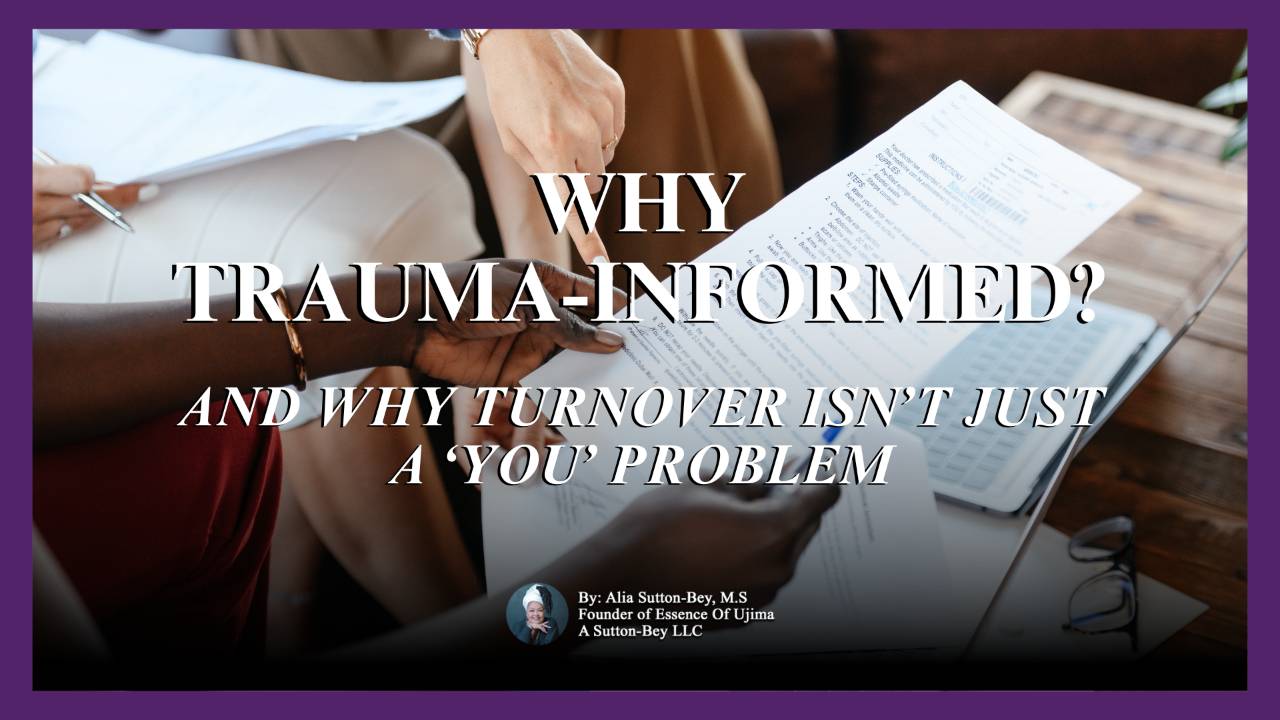Why Trauma-Informed? (And Why Turnover Isn’t Just a ‘You’ Problem)
Apr 08, 2025
Let’s talk about the phrase that turns heads, curls eyebrows, and occasionally elicits an eye-roll: “trauma-informed.”
Why are we still talking about trauma in the workplace? Isn’t that a job for therapists?
Well, if you've ever had a boss who micromanaged you into burnout or a workplace that celebrated “resilience” while ignoring psychological safety—congrats, you already understand the need for trauma-informed leadership. Welcome.

So Why “Trauma-Informed?”
Because trauma is part of the human condition. Period.
It’s not about labeling employees as “damaged” or turning the office into a group therapy session. It’s about designing leadership and workplace culture that accounts for the reality of human experience. That includes grief, discrimination, burnout, bullying, and life beyond the office walls.
We use the term trauma-informed because it reminds us not to design for perfection, but for people. It’s an applied approach, grounded in the six principles from SAMHSA:
1. Safety – psychological and physical.
2. Trustworthiness & Transparency – because shadowy decisions kill morale.
3. Peer Support – we need connection, not just KPIs.
4. Collaboration & Mutuality – power with, not power over.
5. Empowerment, Voice & Choice – your people want autonomy, not babysitting.
6. Cultural, Historical & Gender Awareness – because identity impacts experience.
These aren’t “soft skills.” They’re strategic design choices that reduce turnover, increase engagement, and build purpose-driven teams.
And Now, For the Spicy Part…
At the session, someone asked me: “But what about leaders who don’t care about turnover or employee satisfaction?”
Let’s call it what it is: neglect, not strategy.
If you’re still clinging to the belief that salary alone retains people, you’re stuck on the bottom of Maslow’s pyramid. People want more than a paycheck. They want to belong. They want to be seen. They want to feel that their work matters.
Because when leaders ignore culture, here’s what happens:
- Your best talent leaves. Silently. Swiftly.
- Innovation shrinks. People don’t speak up where they don’t feel safe.
- Toxicity scales. Because people will match the culture, or they'll exit it.

What’s the Alternative?
Trauma-informed leadership.
A workforce model that moves beyond metrics and into meaning. That doesn’t just ask, “Are they hitting the numbers?” but also, “Do they feel valued? Empowered? Safe?”
The truth?
Trauma-informed isn’t a trend. It’s the future of equitable, human-centered leadership.
So next time someone says, “Why trauma-informed?”
Smile, and say: Because we’ve tried everything else—and people still keep quitting.
Want to learn more?
Book a Consultation: https://calendly.com/aliasuttonbey/check-ins
Thought this was helpful? https://buymeacoffee.com/alia1